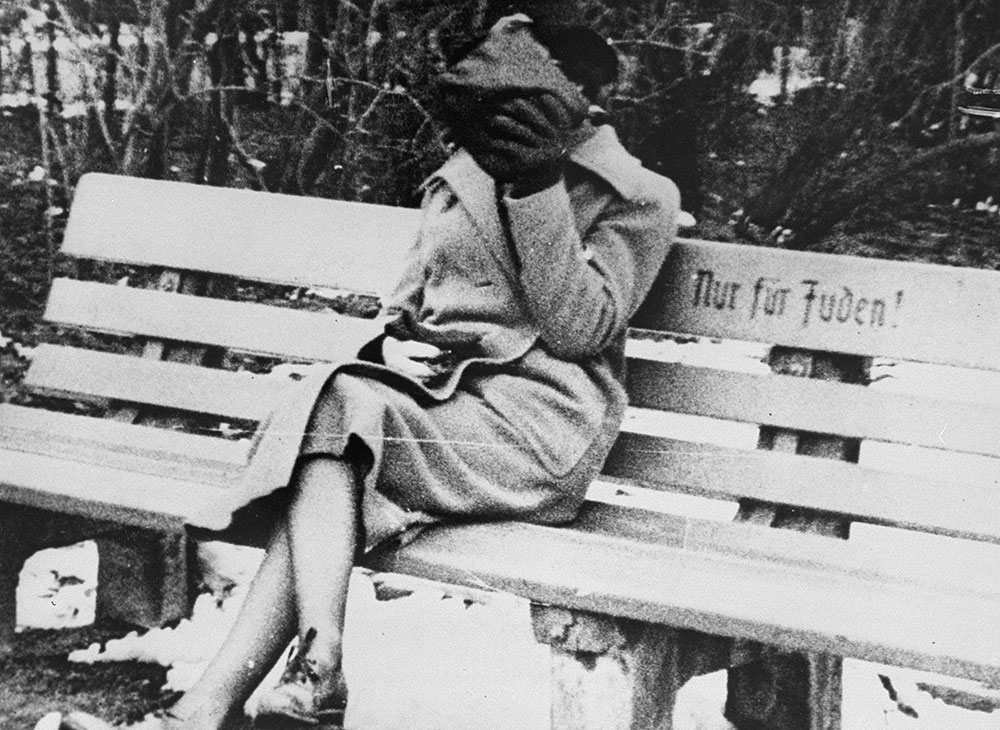Voices on Antisemitism features a broad range of perspectives about antisemitism and hatred. This podcast featured dozens of guests over its ten-year run.
-
Brigitte Zypries
August 13, 2009
As Germany's Justice Minister, Brigitte Zypries is responsible for upholding justice, rights, and democracy in her country. Zypries explains why her government passed a law making Holocaust denial a criminal offense and why that law is important.
-
Tracy Strong Jr.
July 30, 2009
In 1940, Tracy Strong left the relative safety of America to help students displaced by the war in Europe to continue their studies. While uncomfortable with the title "hero," Strong's efforts to sustain an educational safe haven ultimately proved life saving for many young Jews.
-
Rebecca Dupas
July 16, 2009
As a senior in high school, Rebecca Dupas took part in a program sponsored by the US Holocaust Memorial Museum, called Bringing the Lessons Home. The program teaches young people about the Holocaust, so that they can help spread understanding about the dangers of hatred and prejudice.
-
Scott Simon
July 3, 2009
The United States Holocaust Memorial Museum mourns the tragic death of Officer Stephen Tyrone Johns, who died heroically in the line of duty on June 10, 2009, protecting our visitors and staff. This episode of Voices on Antisemitism with Scott Simon ran originally on NPR's Weekend Edition Saturday.
-
Sadia Shepard
June 4, 2009
Sadia Shepard's book The Girl from Foreign documents her travels to India to connect with the tiny Jewish community there and to unlock her family's history. The trip and the book have given her unique insights into the relationships among Jews, Muslims, and Hindus in India.
-
Gregory S. Gordon
May 21, 2009
Gregory Gordon helped to prosecute the landmark "media" cases in Rwanda–where hate speech, broadcast over the radio, was directly linked to the genocide of the Tutsi people. Gordon believes that the lessons learned in Rwanda could be applied in Iran and elsewhere, to prevent these incitement tactics from taking hold.
-
Samia Essabaa
May 7, 2009
Samia Essabaa was born in France to Moroccan and Tunisian parents. A Muslim, shaped by both Arabic and French culture, Essabaa often feels she can relate to her students, many of whom are from Africa and the Caribbean. A believer in hands-on learning, she takes her classes to Auschwitz, where they learn not only about history, but about humanity and community.
-
David Pilgrim
April 23, 2009
In 1996, David Pilgrim established the Jim Crow Museum at Ferris State University in Michigan. As the university's Chief Diversity Officer and a professor of sociology, one of Pilgrim's goals is to use objects of intolerance to teach about tolerance.
-
Sayana Ser
April 9, 2009
Sayana Ser was born in Cambodia in 1981, two years after the fall of dictator Pol Pot. Today, Ser works to help her country heal from that genocide. As part of that effort, Ser decided to translate The Diary of Anne Frank into her native language of Khmer.
-
Christopher Leighton
March 26, 2009
Since 1987, Christopher Leighton has served as the Executive Director of the Institute for Christian and Jewish Studies in Baltimore. A Presbyterian minister, Leighton is deeply committed to disarming religious hatred and establishing models of interfaith understanding.

